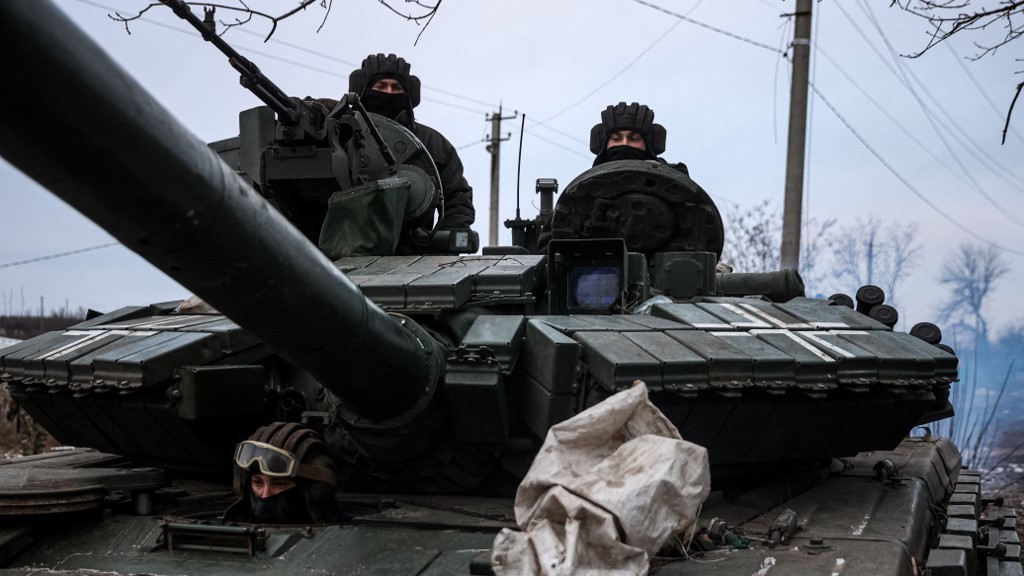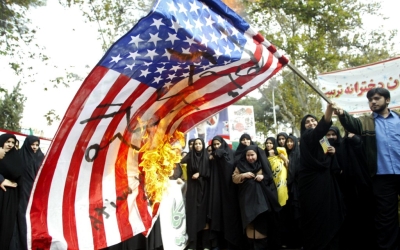As global recession looms, how can the world recover?

A chaotic, disappointing year has ended, and the new year looks like it will be similar. A variety of global challenges serve to remind us that the effects of the Covid-19 pandemic are still at work, including high inflation, weak growth, recession prospects, trade wars and supply-chain shortages.
At the same time, the Russia-Ukraine war grinds on, Beijing is on a new trajectory after last year’s Communist Party congress, and increasingly severe natural disasters are driving home the socioeconomic impacts of climate change.
We have entered a period where security alliances and economic relations are coming into direct confrontation
We are beginning a year in which the globalisation process has been further fragmented, the US-China rivalry has intensified, and the perspective needed to tackle multiple crises has narrowed simultaneously in both the Global North and South. The short-term costs of a genuine fight against global inflation are nothing compared to the destruction it could cause in the medium- and long-term if left unchecked.
In 2022, the agenda of global geopolitics for 2023 was set: the direction of the US-China rivalry and the issues triggered by Russia’s invasion of Ukraine will be major factors. But unlike last year, which focused on rhetoric and vague policy debates, actual practices will now be tested.
In 2023, we will see the limits of Washington’s policy vis-a-vis China. As the US endeavours to limit China through trade wars, it is giving the first signs of surrendering to a new wave of protectionism - not much different from that of Beijing. The “America First” policy, expressed in such vulgar terms by former President Donald Trump, continues as the Biden administration works to “fight inflation”. Europe might also be pivoting towards a “Europe first” policy. While the post-World War II western alliance has been revived amid the so-called Russian threat, the wave of protectionism and subsidies continues to build, as though the rationale for the Bretton Woods system has been forgotten.
Stay informed with MEE's newsletters
Sign up to get the latest alerts, insights and analysis, starting with Turkey Unpacked
The European Union, the last advocate of free trade, is being dragged into trade wars. This process will be painful. The European Commission and its institutionally powerful trade unit are closer than ever to the US and its China policy line. The world must prepare for the fact that in the coming years, global geopolitics and economics will be shaped by actors including Washington, Beijing and Brussels.
Fragmented globalisation
Meanwhile, as China turns from the economy to a “security first” stance, the West’s strategy of including China in the multilateral free trade system is coming to an end, having proven to be fruitless. China’s state-centred economic model has grown exponentially, with key technology sectors being nationalised. The EU is now starting to see another China when it looks at the US, and the reactions of member states to Washington’s protectionist policies will surely produce a counter-strategy.
This deglobalisation process will not have a similar trajectory to the period of globalisation. Fragmented globalisation will continue along various axes. Established networks of capital and labour will help the global economy and its complex trading systems to manage the new frontier. But we have entered a period where security alliances and economic relations are coming into direct confrontation. Countries under a shared security umbrella will doubtless experience economic tensions among one another.
This will not positively affect global security and geopolitics, reduce conflict risks, nor create a balanced deterrence environment. Rather, trade tensions will translate into fuel for geopolitical crises, weakening security cooperation. Insurance policies created by mutual dependencies will weaken.
The first stress test is the sustainability of the military cooperation between Europe and the US after Russia’s invasion of Ukraine. Although Europe and the US have stood together against Moscow, there are increasing economic tensions. While they may be able to separate economics from geopolitics for a while, at some point, this could lead to a serious fracture in their relationship.
Geopolitics took centre stage in 2022, significantly influencing global financial markets and trade. At the same time, security activities among the two most prominent countries identified with geopolitical silence and military pacifism, Germany and Japan - which are among the world’s five largest economies - have ramped up, as they have increased defence spending. Nato is working towards a defence spending baseline of two percent of GDP for all its member countries. While it is too early to determine how this arms race will unfold, it is sure to pour fuel onto existing geopolitical risks.
Amid this backdrop, the big and powerful actors who can lead need more direction. Mid-level powers, meanwhile, see this period as an opportunity for short-term gains. The US, China and the EU are losing ground for cooperation that could help solve problems at the global level. The geopolitical blindness of the US, which started with 9/11, continues apace.
Hegemonic powers
While the US wants to reclaim the role of hegemon, which it has certainly lost and does not possess the clear means to retrieve, it has failed to put forward a perspective that would enable it to assume the associated responsibilities. Domestic tensions in the US have also grown to a point where they exceed the common political problems of other democratic countries, paving the way for further polarisation.
China believes it has the opportunity to become a global hegemonic power, but it wants to avoid taking responsibility for any founding political agenda. As for the EU, despite its success in adopting a common currency, it lost its chance of becoming a geopolitical power by failing to crown the achievement of its enlargement by accepting Turkey into the union. The departure of Britain after Brexit was another blow.
At the same time, the world today faces threats more devastating than conventional warfare: nuclear Armageddon, environmental apocalypse, techno-fascism and pandemics.
What is more troublesome, however, is the evaporation of worldwide intellectual currents and constructive sociopolitical movements. Instead, waves of populism and nationalism have become the most influential forces in their crudest forms.
It is likely that these waves will prevail in the coming years as inflationary pressures mount, distorting the movements of capital, labour and goods. In addition to the pressure this will place on prices and wages, the most apparent geopolitical result will be a restriction of international cooperation and increased security risks.
Last year, the world witnessed - after having silently watched Moscow for the past two decades in Chechnya, Georgia, Ukraine and Syria - how the dreams of Russian President Vladimir Putin have become increasingly unmoored from reality. Geopolitical fault-lines were reactivated and security debates heated up. As a result, Moscow found the West, instead of just Kyiv, actively involved in fighting back. As long as US military support for Ukraine continues, Russia’s chances of radically changing the conditions on the ground are slim.
Geopolitical turbulence
Notwithstanding this vicious cycle, there will be some structural fractures in 2023. After Putin transformed energy into a weapon, Europe’s shift in suppliers of oil and gas has been fuelling new structural relationships and geopolitical interdependencies. Steps towards strengthening LNG transportation infrastructure and supply will continue, with significant geopolitical consequences.
The Gulf’s tendencies towards geopolitical and strategic independence and non-alignment will come under increasing strain, as Russia attempts to enter new markets while Washington exerts contrary pressure. Tensions will surely affect the relationship between Russia and Iran, which has lost market share as Russia has offered discounted oil.
There are both severe obstacles and considerable opportunities when it comes to minimising geopolitical risks in 2023
Still, Europe does not appear to have a clear-cut strategy for the future in the face of the Russian threat. It needs to develop a comprehensive vision of geopolitics and security along its southeastern flank, but amid geopolitical short-sightedness, Europe is postponing this investment. Instability in the Black Sea region, which directly affects food prices, especially in the Middle East and North Africa, calls for a stricter security approach.
Overall, it seems unlikely that the world will emerge from its deepening geopolitical depression in 2023. Rather, we are entering a year of high geopolitical turbulence, as concurrent crises create a domino effect in many areas of an inflationary and protectionist environment. And with each passing month, the US draws ever-closer to its 2024 elections. The fact that President Joe Biden, a centrist political figure whose mentality was entirely shaped by the 20th-century world, has shied away from alternative policies in the face of extraordinary times, will only exacerbate the geopolitical depression.
With a recession looming, the US, like other developed economies, may experience a hard landing - and it should take into account the fact that it may need help in fulfilling its role in the global geopolitical agenda. As the threat rises of the Balkanisation of the global economy, geopolitical risks could also reach a boiling point.
Ultimately, there are both severe obstacles and considerable opportunities when it comes to minimising geopolitical risks in 2023. If Washington presents a collaborative and clear-cut strategy, the world may be able to escape the global geopolitical depression much faster than it has in the past - but is the US in a position to assume such a role? That remains the key question.
The views expressed in this article belong to the author and do not necessarily reflect the editorial policy of Middle East Eye.
Middle East Eye delivers independent and unrivalled coverage and analysis of the Middle East, North Africa and beyond. To learn more about republishing this content and the associated fees, please fill out this form. More about MEE can be found here.







